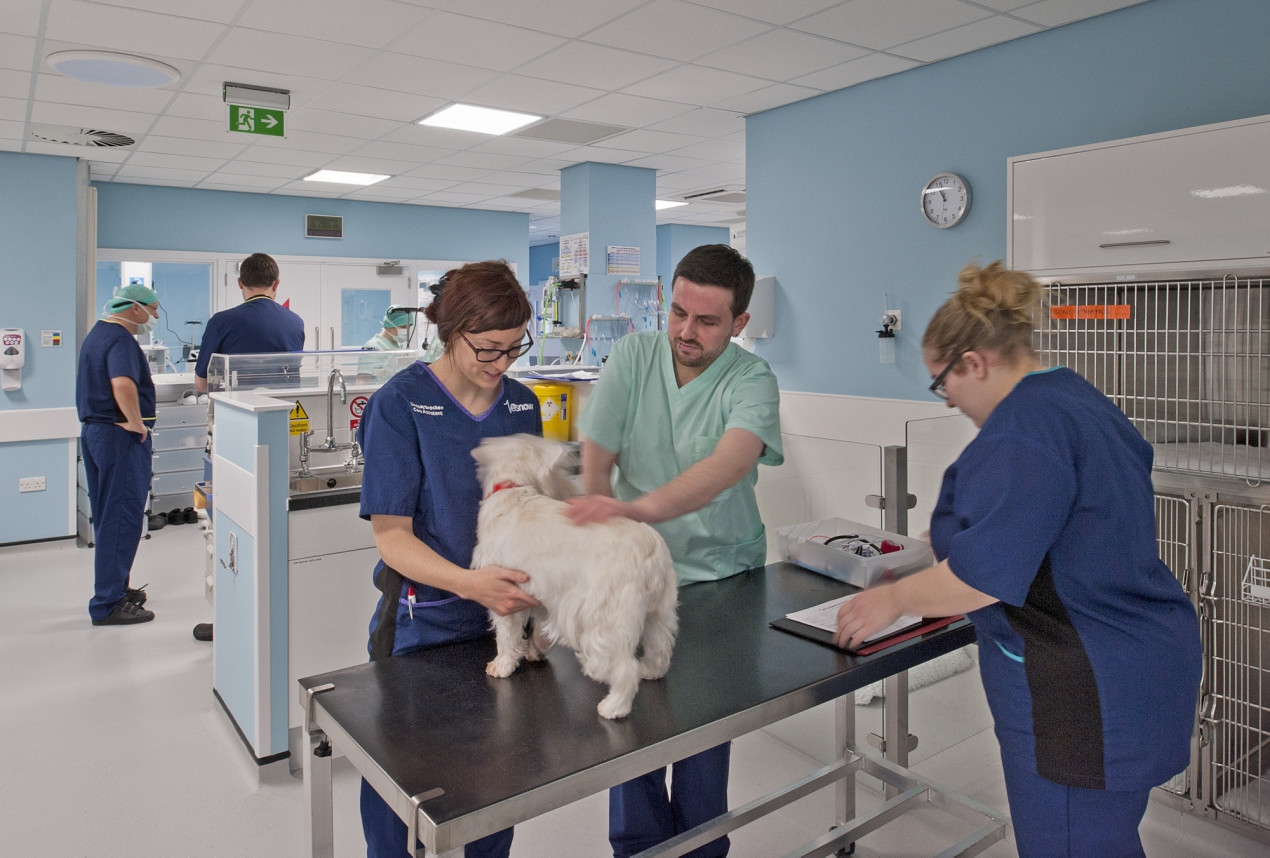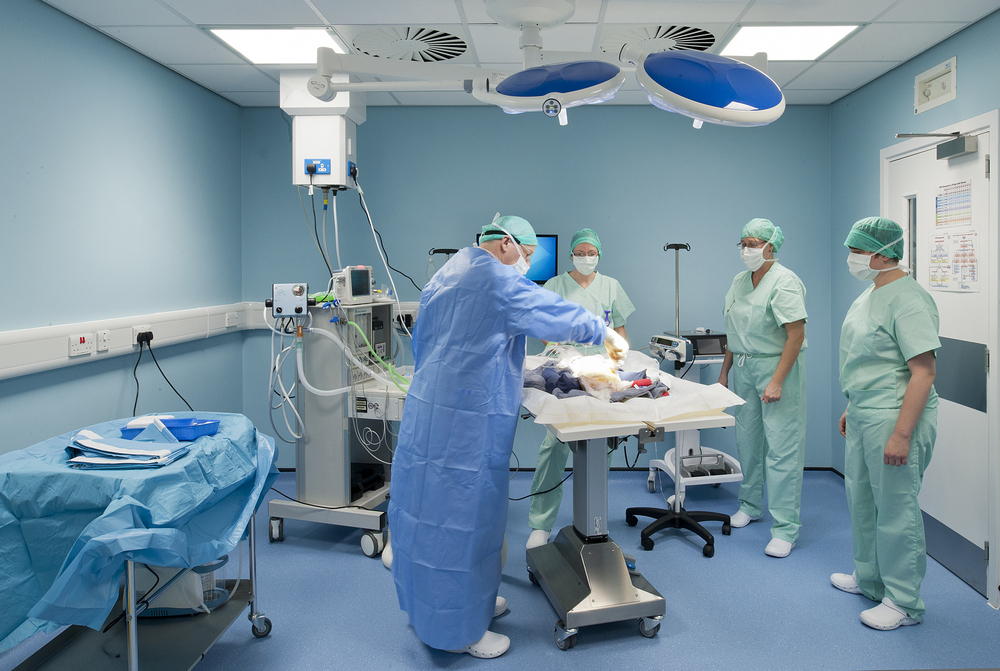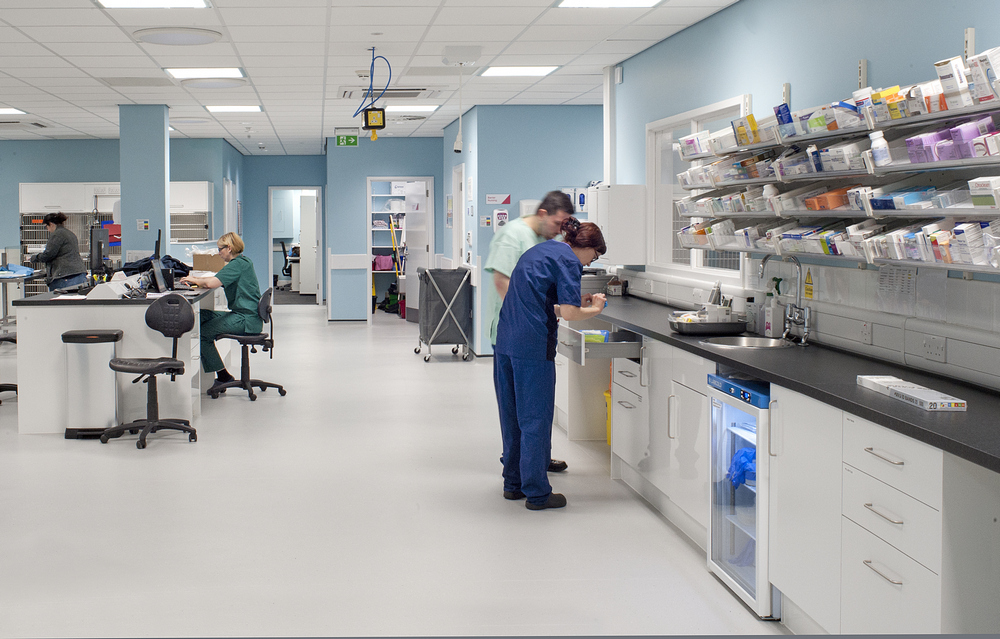
Advanced practitioner Paul Aldridge gives his take on what makes our Manchester hospital a special place to work
Vets Now’s emergency and specialty hospital in Manchester is one of the most technologically advanced pet emergency facilities in the country.
It has also been rated as “outstanding” in the delivery of emergency and critical care as well as in-patient care by the Royal College of Veterinary Surgeons.
But what really sets the hospital apart – aside from its state-of-the-art equipment and resources – are the people who work there. It’s home to several internationally-renowned specialists and referral clinicians.
Among them is Paul Aldridge, an advanced practitioner in small animal surgery, who is widely respected for his academic and CPD work. Our content marketing manager Iain Harrison spoke to Paul about his career journey, his interests, and what makes Vets Now in Manchester such a unique place to work.
Find out more about the services on offer in Manchester

When did working as a vet become an ambition?
When I was around 16. I went to see the school’s career advisor to discuss it with him, although I recall being told I couldn’t be a vet. He said I should make a backup plan and perhaps concentrate on becoming a dentist instead. But I was too focused on becoming a vet, so I arranged to undertake work experience at a local vet and on some farms to get experience of working with animals. I applied to Liverpool University at 18.
Tell me about your career to date?
After I had graduated I accepted a job in a mixed practice in Lancashire as, at the time, I didn’t know the specific direction I wanted my career to take. After four years I began to focus on small animal surgery. I then moved to a small animal hospital in Manchester before progressing onto other referral practices across the city where I focused mainly on treating orthopaedic and soft tissue referral cases. I joined Vets Now in 2016.
What do you enjoy most about your job?
The lack of routine. In a traditional daytime practice, vets typically see relatively healthy animals needing medication or basic treatment, whereas in my job every day is different. I tend to see very sick pets who require surgery to have the best outcome. I enjoy spending time with these animals and doing my best to ensure the prognosis is good for them. For example, if a dog comes in with a broken leg but two months later he’s back running around with his owner, I feel like I’ve achieved something and had a positive impact on the dog’s life.
Tell me more about your clinical interests?
I enjoy all aspects of surgery, but particularly traumatology, cruciate disease and acute abdominal surgery. Fractures and gastrointestinal surgery can also be very interesting.

Interested in referring a case to our team in Manchester?
What makes Vets Now in Manchester a special place to work?
The fact it’s staffed 24/7 means we have an enormous capacity to look after animals. The integration between the out-of-hours team and the daytime staff is amazing, so if a dog needs surgery during the day, we can guarantee we’ll have highly-skilled staff in place to look after his every need before surgery, after surgery and through the night. The facilities here are also incredible compared to most other hospitals. We have everything a veterinary surgeon might need to treat an animal. As a team, we know can rely on our colleagues 24-hours-a-day, seven-days-a-week, no matter the situation. It’s amazing working alongside so many experienced surgeons and ECC teams. In regards to treatment, it certainly makes life easier being able to call upon and get input from so many other talented vets.
What are your ambitions for the hospital?
To continue to establish itself as a fully-functioning, truly multi-disciplinary hospital. When the hospital opened last year, we offered ECC, surgery, internal medicine and imaging as referral disciplines. In time, I’d like to think we will offer an even wider range so we’re in a position to treat as many different scenarios as we can.
What do you enjoy most about delivering CPD?
The teaching aspect mainly. I enjoy passing on what I’ve learned to vets and vet nurses as well as talking about what I do and finding out about what others do. I like giving them something to take back to their practices. Myself and Louise O’Dwyer have written a textbook that’s popular among veterinary nurses, and we hold regular courses – not only across the UK but in Europe too – on emergency care and emergency surgery. We do full six-hour lectures and practical surgery courses, and while we focus mainly on face-to-face teaching, we also do interactive webinars.
What do you like doing outside of work?
I enjoy spending time with family. I’m married with two teenage daughters, Ella is 17 and Amber is 14. I also have two dogs, Sammy and Bella, both of which came from work. They were both strays with broken legs that I fell in love with.

